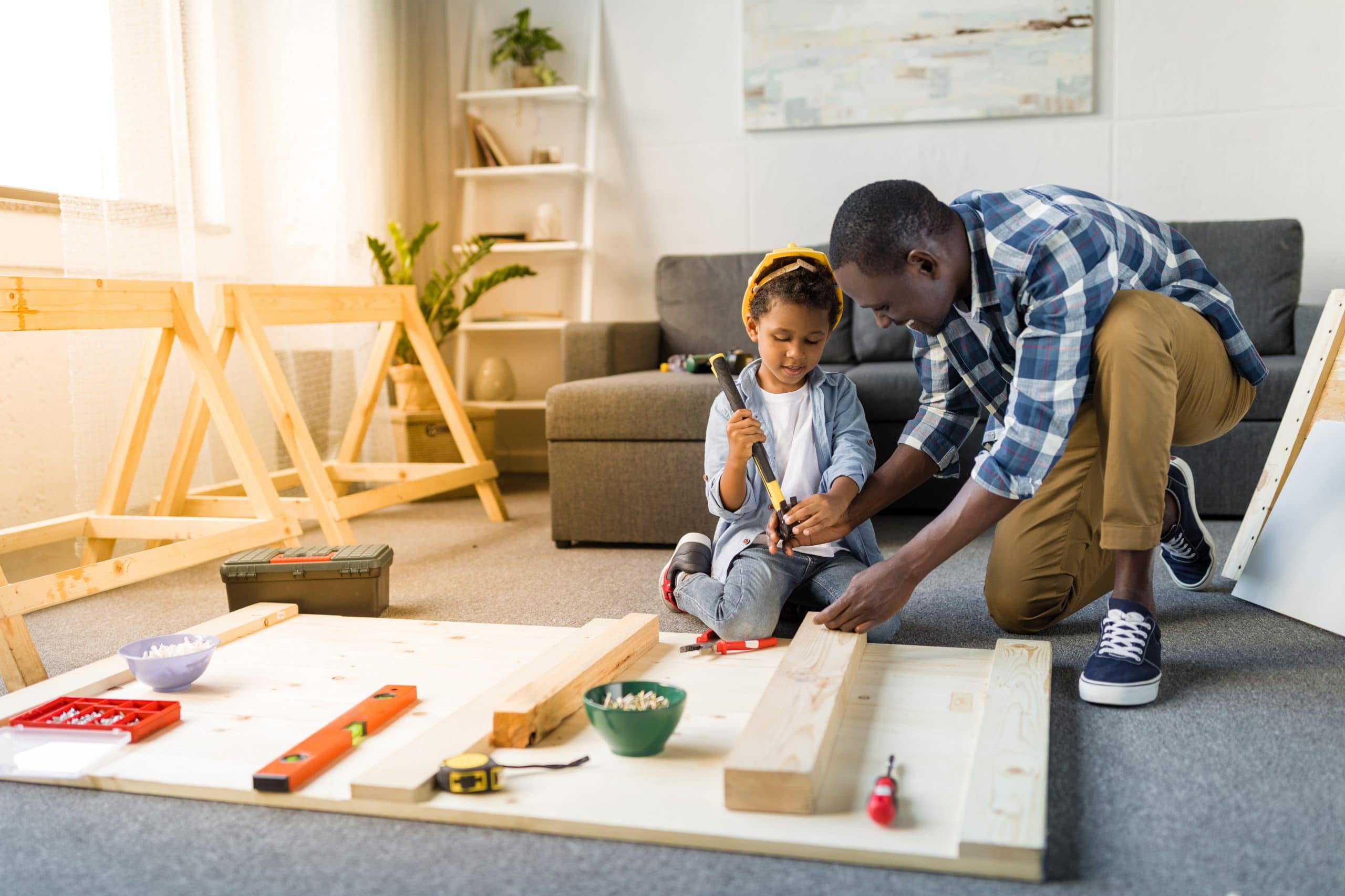#Life
12 Tips For Suddenly-At-Home-Schoolers
Published

As each and every one of us grapple with the various changes that have been imposed by the global Coronavirus pandemic, families with school-aged children have their own set of new challenges. A top priority after working hard to keep everyone safe is to keep up with each child’s education needs while also trying to work from home yourself.
You may find your suddenly-at-home-schoolers status unproductive and taking you to new levels of frustration and exhaustion. As a long-time homeschooler, I have a great deal of experience in this area and learned these ropes from intense amounts of reading and lots of trials and tribulations. Five of our children have been homeschooled and four of them exclusively from KG through high school. If you are working from home, I can also feel that pain. My husband and I have worked from home for more than 25 years and it is a balancing act of tremendous proportion. We are here to share the benefit of our individual and collective experiences.

Here are 12 tips and tricks from the field to help you maneuver into these uncharted waters
Keep supporting MuslimMatters for the sake of Allah
Alhamdulillah, we're at over 850 supporters. Help us get to 900 supporters this month. All it takes is a small gift from a reader like you to keep us going, for just $2 / month.
The Prophet (SAW) has taught us the best of deeds are those that done consistently, even if they are small. Click here to support MuslimMatters with a monthly donation of $2 per month. Set it and collect blessings from Allah (swt) for the khayr you're supporting without thinking about it.
1. Remember that parent as teacher is NOT a new role. You have always been your child’s primary teacher. This cannot be overstated. While you may recognize this role when your children are very young and fully dependent upon you, it actually continues as they grow. We teach by our words but also, most poignantly, by our actions. And actions sometimes speak louder than words. Our children watch and listen at every age. They make note of the consistency or lack of it. They figure out if parents are on the same page or have different sets of rules and expectations (a fact accentuated if there are two separate households as a result of divorce).And they also pay close attention to our moods and are sensitive to our stress.
Keep in mind that your parenting – the source of a full range of emotion from incredible joy to incredible frustration – is a special gift from Allah, the One who knows best!
2. Expect that it will take time to transition. We are already a couple of weeks into this new paradigm and it still may feel strange for everyone. The needs are further compounded by the fact that both parents and children have been thrust into these new waters at the same time. It takes time for all of us to settle into new surroundings, routines, and strategies for success. We may need new skills and resources. We may need a different level of cooperation and collaboration. We may all need to just take a deep breath, quite literally!

3. Home does not need to become a traditional classroom to accomplish learning. You didn’t treat your child’s school like your home so don’t treat your home like a school. Each traditional classroom has a particular set of rules and parameters that sets the stage for group instruction – static schedules move large numbers of children into place at the same time, rules and norms are established for behavior (crowd) control, written assignments are necessary to ensure understanding en mass, desks are lined up to fit a maximum number of kids into a set space, etc.These same kinds of constructs are not necessary and do not work at home.
Be flexible. There doesn’t have to be a particular time to do math work each day. There doesn’t need to be a row of desks to work on an assignment (a kitchen table is fine). Reading a book might be most comfortable at bedtime. Children can actually work and learn together rather than be separated by ages. Downtime (and I mean screen-free time here!) can be where some of the best creative thoughts and learning germinate.

4. Maximize the resources that are available online. You have likely been provided with enrichment packages or online learning materials from your child’s school. But without the regimen necessary to instruct large groups, your children are likely to work through this material in far less time than their regular school hours. Consider looking beyond these materials to stimulate them. There are a wide variety of educational materials that are available online. In fact, there is so much that it may seem overwhelming, but don’t get discouraged. It will be worth the energy if you can find educational materials and electronic games that making learning fun and that your children are eager to use.
5. Invite your children into the process of planning and organizing the tasks at hand. Identify what needs to be accomplished when and by whom. Call a family meeting to set the stage for the week ahead. Our family used a whiteboard, putting things into writing so that tasks and assignments would be visible, remembered accurately, and could be revisited as necessary. Ask for input from your children (no matter how old they are) and listen to their insights. It is best for them to have some ownership and it is much easier to hold them accountable that way. A morning huddle might also be in order, particularly if there are different needs on different days. Be sure to include areas such as food preparation and eating times, what is off-limits in terms of entertainment, and how to resolve conflicts if they arise.
6. Bring the best properties of home to learning. Now is the time to think outside of the box and be open to learning in new ways. There are creative ways to get to the same learning objectives as traditional assignments.Cheerios or jelly beans can but used as tools in a math problem as easy as working with items on a printed page (and they are an instant reward for a correct answer!).Think about ways to maximize teachable moments.We may all recognize that learning about the Coronavirus is a relevant science lesson, but so too is baking cupcakes (and that fraction and chemistry lesson also produces delicious results)!
On the literature front, if your child is tasked with reading a book that has also been made into a film, plan to watch the movie together when the book is finished, and then compare and contrast the two. Julie Bogart, the founder of a wonderful online homeschooling resource called Braver Writer, reminds us that “kids learn the best when they can express what they understand verbally to an interested adult.” Every word in this piece of advice is important. Isn’t this what we expect them to do in a traditional school setting? It certainly applies at home as well.

7. Make efforts to give your children your undivided attention. Children of all ages need it. How many times had you previously complained that you didn’t have enough time at home? Maybe being sheltered in place wasn’t what you had in mind, but it, without a doubt, provides the quantity of time to make parent-child bonding possible. The trick is to make the time also quality time. Have a tea party with your children complete with fancy desserts and flowers. Play a board game or complete a jigsaw puzzle. Take a phone-free walk around the neighborhood when weather permits. Listen to an audiobook together. You will be amazed by what you learn about your children when you do. They may also learn something new about you in the process.
8. When you have to work undisturbed make it also a special time for your children. There will be times that you have to focus your own attention on work, whether it is home chores or attending to your paid work from home. Don’t expect your children to just do their schoolwork while you are working. Educational tasks that are done alone can be lonely, especially when children are used to learning with other children their ages. Have a special group of toys, books, play dough, video games, or movies that can be utilized during these periods. If the time is seen as an opportunity for a special treat, your children will look forward to it rather than resent your divided attention. Be sure to also acknowledge their efforts and show appreciation for their cooperation. Positive reinforcement can go a long way here!

9. Plan to do your work when your children are asleep if possible. It is easier to concentrate without background noise or competing demands. This may look different in each family. For some, early morning works best; for others, after bedtime is more productive. You may have to figure out what works for your family by trial and error. And if two parents are trying to work from home, you will likely have to toggle shifts. This may not be easy.

10. Use your bodies. Without PE classes, a walk to the school bus, or a trip to the playground, our children are not likely to get regular exercise. And it may be the same for you. You probably are already challenged by the pent-up energy. It is often stated that exercise influences the mind, body, and soul. It stimulates blood flow, improves your mental health and moods, sharpens thinking skills, and more. Did you know that movement can also impact learning? Kinesthetic or tactile learning is a learning style that takes place by the students carrying out physical activities, rather than more statically listening to a lecture or watching demonstrations. If your kids are learning their multiplication tables, for example, have them jump on a mini-tramp or jump rope at the same time. Or sit in a circle and throw a soccer ball or football while they match up states with their state capitals. There is a great deal of science that suggests this type of learning is productive in the short- and long-term.
11. Remember, children will always children. They cannot give you more than they are developmentally capable of giving. We can look at depictions of children living in unimaginable poverty, amidst war, amongst the homeless, and struggling in homes with domestic violence. These children grow up without the pleasure of a normal childhood. May Allah SWT watch over and protect them from harm. In contrast and by the mercy of Allah, for many of our children, their biggest trials are with luxury and entitlement. They are not used to thinking about details because they usually don’t have to. Remember, children largely do not have executive organization functions (and that doesn’t change because you want or need them to!). They lack the poise, emotional control, common sense, and maturity to understand the full dimensions of the changes that have recently taken place. They usually have no sensitivity to family financial matters, i.e. how much money comes in and how much it actually costs to maintain a stable family life. This doesn’t just apply to young children. Teenagers can be oblivious and self-absorbed. They require a ton of sleep during these times of physical growth, too, when hormonal changes are ravaging their bodies. If you are not getting the results you are seeking, step back and ask this question – is my child even developmentally capable of meeting these new demands?

12. Lean in with your whole self. There is no coincidence. Alhamdulillah, we are in this place and time and we must work to make the most of the opportunities in front of us. Patience and perseverance are your best friends. And gratitude is paramount to keeping perspective and making the most of the many blessings that Allah 
Keep supporting MuslimMatters for the sake of Allah
Alhamdulillah, we're at over 850 supporters. Help us get to 900 supporters this month. All it takes is a small gift from a reader like you to keep us going, for just $2 / month.
The Prophet (SAW) has taught us the best of deeds are those that done consistently, even if they are small. Click here to support MuslimMatters with a monthly donation of $2 per month. Set it and collect blessings from Allah (swt) for the khayr you're supporting without thinking about it.
Zahirah Lynn Eppard is the mother of six children from 38 to 17 years old and three grandchildren. In addition to being a homeschooler, graphic designer, former lobbyist and labor organizer, and crisis intervention counselor, she is currently the principal of the MCC Weekend School, one of the oldest and largest Islamic weekend school programs in the Washington, DC metropolitan area. According to Zahirah, “All of my previous work experiences are rolled into this job which allows me to focus on two of my greatest passions – a love of children and spreading the light of Islam to others.


My First Ramadan As A Convert: The Lengths Small Acts of Kindness Can Go

What Islam Actually Says About NonMuslim Friends | Night 8 with the Qur’an

Ramadan, Disability, And Emergency Preparedness: How The Month Of Mercy Can Prepare Us Before Communal Calamity

Somalis In Firing Line Of American Crackdown

Week 1 in Review: Is Your Teen Actually Changing? | Night 7 with the Qur’an

30 Nights with the Qur’an: A Ramadan Series for Muslim Teens

How to Make this Ramadan Epic | Shaykh Muhammad Alshareef

[Podcast] The Parts of Being an Imam They Don’t Warn You About | Sh Mohammad Elshinawy

[Podcast] Guardians of the Tradition: Muslim Women & Islamic Education | Anse Tamara Gray

Starting Shaban, Train Yourself To Head Into Ramadan Without Malice

What Islam Actually Says About NonMuslim Friends | Night 8 with the Qur’an

Week 1 in Review: Is Your Teen Actually Changing? | Night 7 with the Qur’an

Why Your Teen Wants to Change Their Muslim Name | Night 6 with the Qur’an

The Comparison Trap | Night 5 with the Qur’an

When You’re the Only Muslim in the Room | Night 4 with the Qur’an
Trending
-
#Islam1 week ago
30 Nights with the Qur’an: A Ramadan Series for Muslim Teens
-
#Current Affairs1 month ago
[Podcast] Should Muslims Ally with Conservatives or Progressives? | Imam Dawud Walid
-
#Islam4 weeks ago
How to Make this Ramadan Epic | Shaykh Muhammad Alshareef
-
#Life4 weeks ago
[Podcast] The Parts of Being an Imam They Don’t Warn You About | Sh Mohammad Elshinawy









Al Kalaam
April 12, 2020 at 6:47 PM
Maa sha Allah well written and useful tips !